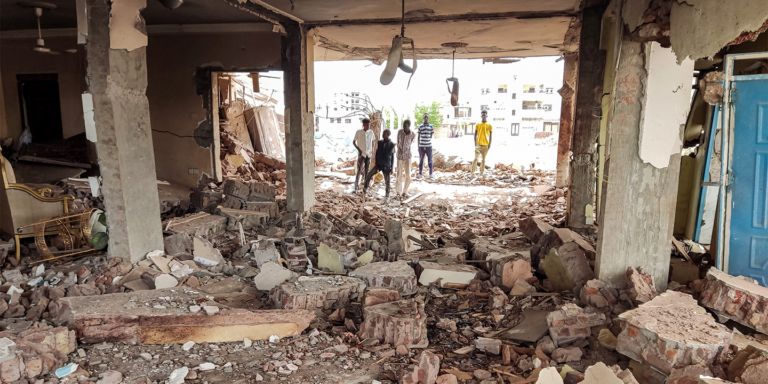
Sudan’s Darfur region is facing a serious risk of genocide as the world’s attention and activist groups focus on conflicts in Ukraine and Gaza.
“We do have circumstances in which a genocide could be occurring or has occurred,” the UN Special Adviser of the Secretary-General on the Prevention of Genocide, Alice Wairimu Nderitu, told BBC’s Newsday programme.
She said many civilians were targeted based on their ethnicity in Sudan’s besieged city of El Fasher, where fierce fighting has intensified.
Twenty years ago, the world failed to prevent genocide in Darfur and has failed to hold perpetrators accountable for the last two decades. Action is needed now to avert further mass atrocities.
Non-Arab populations in Darfur, especially members of the Masalit ethnic group, are at risk of genocide.
The armed conflict between the Sudan Armed Forces (SAF) and Rapid Support Forces (RSF), which began in April 2023, risks descending into a protracted conflict. Since the start of the conflict. While civilians across the country are at risk due to this ongoing war, the history of genocide coupled with recent reports of ethnically-targeted violence against civilians in Darfur means there is a higher risk of mass atrocities being committed against non-Arab populations in Darfur.
With the RSF’s increased force strength, power, and influence the threat to civilians in Darfur has grown considerably. During the genocide that began in 2003, Janjaweed militias, with support from the Sudanese government, were responsible for some of the worst violence against civilians in Darfur. The Janjaweed evolved into the RSF in 2013. Janjaweed members and leaders, including Mohamed Hamdan Dagalo (aka “Hemedti”), the current leader of the RSF, have never been held accountable for the mass atrocities they’ve continued to commit since the early 2000s.
As Alice Wairimu Nderitu, United Nations Special Adviser on the Prevention of Genocide, stated, “When perpetrators of past atrocities are not held accountable for their action, we are doomed to see history repeat itself.” Unfortunately, we are seeing history repeat itself right now.
The current violence in Darfur echoes the past with several reports indicating non-Arab groups are specifically being targeted. Doctors serving with Médecins Sans Frontières have reportedly said that El Geneina, the capital of West Darfur, “has become one of the worst places on earth.” Credible reports and satellite imagery have shown “systematic arson attacks reportedly by the RSF.” Razing of villages was a tactic often employed throughout the Darfur genocide of the early 2000s.
There have also been targeted killings of high-profile individuals. On June 14th, the Governor of West Darfur, Khamis Abdallah Abbakar, was assassinated. His death came just hours after he criticized the RSF for committing genocide. The United Nations Integrated Transition Assistance Mission in Sudan (UNITAMS) stated that, “Compelling eyewitness accounts attribute this act to Arab militias and the Rapid Support Forces (RSF).” Additionally, several members of the Masalit Sultan Saad Bahreldin’s family have been targeted and killed, including his brother.
The situation is dire. On June 15th, United Nations Under-Secretary-General for Humanitarian Affairs and Emergency Relief Coordinator Martin Griffiths wrote on Twitter, “Darfur is spiraling into a humanitarian calamity. People are trapped in a living nightmare…The world cannot allow this to happen. Not again.”
The failures of the international community to protect the people of Darfur cannot continue. It is not too late to take decisive action, live up to the Responsibility to Protect, and prevent further loss of life.
Sources:
Anadolu Agency
Council on Foreign Relations
Human Rights Watch
Wikipedia